








Voting is the heart of democracy, an opportunity for citizens to choose their leaders, and adopt or reject new laws and tax measures. According to Thomas Paine, “The right of voting for representatives is the primary right by which other rights are protected. To take away this right is to reduce a man to slavery, for slavery consists in being subject to the will of another, and he that has not a vote in the election of representatives is in this case.”
Paine published this statement in 1795. It’d be 70 years before African Americans secured the right to vote, and more than hundred years after that until they achieved a modicum of unmolested ballot access throughout the United States. Women weren’t able to choose their representatives until 130 years had passed post Paine’s proclamation. Today, identification requirements and periodic eligibility purges, among other things, suppress voting entree in many states.
To vote is a sacred act. The ability to do so has been subject to a relentless civil war, to enhance or strangle access, loud and mostly silent, through much of American history. Yet, in California not even two-thirds of those eligible vote during national elections. Some nonvoters don’t believe anything will change whether or not they exercise their franchise; others can’t be bothered. But the truth is voting is hard, in ways well beyond queuing or posting mail-in ballots.
“We have got to grab our comfortable shoes, put on our masks, pack a brown bag dinner and maybe breakfast too, because we’ve got to be willing to stand in line all night if we have to,” Michelle Obama said at the Democratic National Convention.
No doubt. Most of us will take great delight in connecting the arrow to vote for Joe Biden and Kamala Harris, ejecting the Id in favor of the Ego. But before we put on those comfy shoes we need to secure our ballots, do our homework,
Proposition 14: Borrowing for Stem Cell Research
Funded by Silicon Valley real estate developer Robert Klein, JDRF International – a nonprofit that funds diabetes research – and Open Philanthropy Project, this measure would authorize the issuance of a $5.5 billion bond to fund stem cell research. In 2004, voters passed Proposition 71 to create the California Institute for Regenerative Medicine, which channeled $3 billion in state money toward stem cell research. That pot of cash is now almost empty.
View recommendation: Meh. Stem Cell research shows promise, and the Institute of Regenerative Medicine has been an economic boon to Mission Bay, but it’s hard to argue that a narrow focus on a particular set of medical investigations is the best way for California to spend billions of dollars.
Proposition 15: Split roll
Largely funded by the California Teachers Association, California Service Employees International Union and Chan Zuckerberg Initiative, under this constitutional amendment commercial property would be taxed based on its market value, rather than its purchase price plus capped annual increases. In 1978, California voters passed Proposition 13, which limited property tax hikes, thereby constraining revenues dedicated to local governments, which’re largely funded through property taxes. This initiative would repeal property tax protections only for commercial landlords with more than $3 million in holdings. If it passes, those landowners would have to make tax payments based on their properties’ current value — a tax rise for most — generating $6.5 to $11.5 billion more for cities, counties and school districts.
Subscribe now to help keep community news alive!
The View has 77 subscribers; to continue to survive, we need to reach at least 200.
View recommendation: Yes. Probably not an excellent time to sock commercial properties with additional significant taxes, what with empty office towers and the like. Then again, local governments and schools could really use the money.
This constitutional amendment would reauthorize schools and public agencies to consider race and other immutable characteristics when making admission, hiring and contracting decisions. The measure would overturn Proposition 209, adopted in 1996, which banned use of affirmative action at state institutions. In 1995 more than six percent of University of California, Berkeley freshmen were African American; in 2017 that’d been halved, to less than three percent. Similarly, 29 percent of UC Los Angeles students are Asian American, 27 percent White, 22 percent Latinx and three percent Black. In comparison, 39 percent of state residents are Latinx, 37 percent White, 15 percent Asian American, and six percent African American. Civil rights organizations’ attempts to repeal Proposition 209 have so far been blocked by a coalition of Republicans, moderate Democrats and progressive legislators who represent Asian American voters. Chinese Americans in particular have argued that increasing enrollment of students from underrepresented racial groups would come at the expense of “overrepresented” Asian American scholars.
View recommendation: Naybe. Black and Brown students are no doubt provided with lower-quality kindergarten through twelve grade education, as a result garnering less than their fair share of college admissions. However, it might be better to address this fundamental failure, by voting for Proposition 15.
Proposition 17: Restoring the Parole’s Voting Rights
This constitutional amendment would allow Californians on parole to go to the polls. In 1974, state voters passed a ballot measure that gave people who committed felonies the right to vote once they completed their sentences and are no longer on parole. Presently, there are roughly 40,000 non-imprisoned Californians who can’t participate in elections, upwards of two-thirds of whom are Latinx or Black.
View recommendation: Yes
Proposition 18: Granting Some 17-Year-Olds Voting Rights, Sometimes
This constitutional amendment would allow 17-year-old American citizens to vote in primary and special elections if they’ll turn 18 by the subsequent general election. The California Democratic Party has been steadily working to expand voting access, including same-day registration, automatic registration at the California

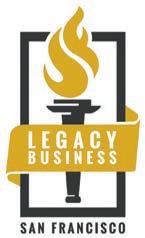









Department of Motor Vehicles, and preregistration of 16- and 17-year-olds. This measure would add California to 23 other states in which 17- year-olds can vote in certain circumstances.
View recommendation: Yes. It makes sense to enable those who will qualify to vote in an upcoming general election to help choose what’ll appear on that ballot.
Proposition 19: Property Tax Breaks
This constitutional amendment, backed by the California Association of Realtors, would allow homeowners who are over 55, disabled or natural disaster victims to take a portion of their property tax base with them when they sell their house and buy a new one. It’d also limit the ability of those who inherit properties to keep their parents’ or grandparents’ low property tax rate. Most of the additional revenue raised would go into a state fire response fund. Realtors argue that current property tax rules disincentivize longtime homeowners from moving, “trapping” empty nesters in houses that’re too big for them and locking out new families. Under this measure, home inheritors would only be allowed to keep the low property tax rate if they use the dwelling as their primary residence, limited to the first $1 million of increased value since the property was purchased. Inspiration for this element may have come from the Los Angeles Times, which reported that “The Big Lebowski” star Jeff Bridges, among others, was paying 1970-era property tax levels on his rental property.
View recommendation: No. The main meat of this stew is providing property owners over the age of 55, who have an average net worth of well over $1 million, with a tax break. The fire toppings are nice, but don’t merit buying the casserole.
Prop. 20: Roll Back Governor Jerry Brown-era “Leniency”
Largely funded by law enforcement agencies, this constitutional amendment would allow prosecutors to charge repeat or organized petty theft as a felony, require probation officers to seek tougher penalties for those who thrice violate their parole terms, and exclude those who have been convicted of domestic violence and certain nonviolent crimes from early parole consideration. Brown spent his last two terms as governor working to reverse the “tough on crime” policies he supported during his first two terms in the 1970s and 1980s. In 2011, California legislators reduced punishments for parole violators. In 2014, voters passed Proposition 47, recategorizing some non-violent crimes as misdemeanors. In 2016, the electorate endorsed Proposition 57, giving inmates convicted of certain non-violent offenses a shot at early release. This measure would partially undo those reforms.
View recommendation: Naybe. Property crime is a problem, no doubt, but the solution isn’t to jail more people.
Proposition 21: Rent Control
Funded by the AIDS Healthcare Foundation, this statute would overturn state restrictions on locally-im-
posed rent control measures, allowing cities to adopt new rent control laws, or expand existing ones, but only on residences that’re at least 15 years old, and not on single-family homes owned by landlords with no more than two properties. Last year the State Legislature passed a law that set a seven percent ceiling on rent increases.
View recommendation: No. Older residential properties in San Francisco are already subjected to quite sufficient rent regulation; this measure would further embed inequitable rules based on building age.
Proposition 22: Self-Employment for Ride-Hail and Other App-Drivers
Mostly funded by Lyft, Uber and Doordash this statute would turn “app-based” drivers into independent contractors, exempting transportation network companies from standard wage and hour restrictions. It’d also guarantee these drivers an earnings floor, a stipend to purchase health insurance and other minimum benefits. The initiative would overturn Assembly Bill 5, adopted last year, which codified a state Supreme Court ruling that made it much harder for companies to treat their workers as independent contractors, rather than full-fledged employees. That, in turn, upended the business models of Uber, Lyft, Doordash, Postmates and Instacart, all of which rely on an army of flexible gig-workers to provide their services. In the meantime, California’s Attorney General has sued Uber and Lyft for violating the new law; California regulators declared their drivers to be employees. The companies have poured more than $110 million to push

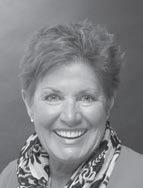
this proposition, which’d exclude their drivers from AB 5, while adding some worker benefits and protections.
View recommendation: No. Drivers should be paid a fair wages and benefits.
Proposition 23: Regulate Dialysis Clinics
Funded entirely by the Service Employees International Union-United Healthcare Workers West, this statute would require dialysis clinics to have at least one physician on site always and report patient infection data to California health officials. DaVita Kidney Care and Fresenius Medical Care own most for-profit dialysis clinics in the state. For years, SEIU-UHW has been at war with them, failing to unionize clinic staff.
View recommendation: No.
Proposition 24: Stronger Consumer Privacy Laws
Funded by San Francisco real estate developers Alastair and Celine Mactaggart, this statute would further strengthen California’s already strongest-in-the-nation consumer privacy law and establish a California Privacy Protection Agency. In 2018, state lawmakers passed the California Consumer Privacy Act, giving consumers the right to find out what data companies are collecting about them, to optout of having it gathered and to have that data scrubbed. It’s the only law like it in the county. Along with establishing a state agency tasked with STATE INITIATIVES continues on page 16
Breathtaking views abound in this unique home in an A+ location in Potrero Hill's North Slope neighborhood. Three levels of living space + additional lower level garden apartment. Three bedrooms w/ensuite baths. Expansive deck on top level w/pano views of SF, Bay, Bridge to East Bay. Professionally landscaped garden and decks off each level. Double paned windows throughout. Parking for one car in garage. This home is truly one-ofa-kind masterpiece that shows an owner quality renovation.
Offered at $3,299,000


The politics of the City College Board mirrors the dysfunction of the institution itself. Virtually the only people who seem to want the trustee job are those looking for a stepping-stone or who can’t find anything better to do with their time. Despite nonstop travails, including nosediving enrollment and continuous near bankruptcy, one trustee, whose seat isn’t in play this cycle, has been installed for 14 terrible years. Even Pacific Gas and Electric Company retired its longtime board members, though it took homicide charges to force the action.
This essential institution is poised, yet again, for a change, this time hopefully for the better. It has money to invest from a $850 million bond that passed last year, could leverage Free City to boost enrollment, and is partnering with San Francisco State University on an early-transfer program. Perhaps the present round of CCB candidates will rise to the occasion.
Attorney Jeanette Quick seems to understand the depths of CCSF’s problems and has an approach to fixing them. “The greatest challenge facing City College is the fact that it is in financial freefall with rising budget deficits and no clear plan as to how it will get back on track,” Quick wrote in response to questions from the View. “It is possible that I will vote to close campuses if it’s determined that there are no resources to make them viable; I do not think this is an ideal outcome, but the reality is that the College has very little funds and its ability to operate as a going concern is in question. In such
a state, making cuts is preferable to shutting down the college completely.”
College instructor Victor Olivieri’s highest priority is “Righting the wrongs of years of deficit spending and deferred maintenance.” He believes that CCSF’s financial situation is “dire,” and wants to use a 2019 audit of the college as the basis to address embedded problems.
Incumbent Tom Temprano wants “…to create a common-sense budget that prioritizes getting resources into our classrooms, to get San Francisco students into City College by rebuilding the relationship with the San Francisco Unified School District and to ensure that City College has the classes and programs that students want and need to be successful.” His effectiveness in making progress towards these goals during his short time in office is questionable, but at least he’s pointing in the right direction.
“The District’s current financial situation is dire,” said Alan Wong, who is an education policy advisor for District 4 Supervisor Gordon Mar. “As a fiscal steward for the welfare of the entire college community, I acknowledge that I must be open to all options to close the structural budget deficit at the College. As a last resort, Trustees must be willing to consider making hard decisions to consolidate, close, or reduce underperforming programs and services.”
The View endorses Quick, Olivieri, Temprano, and Wong for City College Board.
Measure A , the “2020 Health and Recovery General Obligation Bond”, would dedicate $487.5 million of borrowed money to provide health care services to those without homes, renovate parks, and improve streets.
According to the San Francisco Department of Elections, $207 million would be invested “…in facilities that provide treatment and permanent supportive housing for people experiencing mental health challenges, substance use disorder, and/or homelessness”. Two hundred and thirty-nine million dollars would be used to “build and improve safe and accessible parks, recreation facilities, and open spaces throughout the City with shovel-ready projects and programs”. Forty-one and a half million dollars would be spent on “…shovel-ready public infrastructure projects including street resurfacing and the construction and maintenance of curb ramps, street structures, and the pedestrian right of way.”
The San Francisco Board of Supervisors (BoS) unanimously supports Measure A, as does Mayor London Breed.
According to District 10 Supervisor Shamann Walton the measure would address urgent needs. “We have so many issues and concerns in these areas. Putting it all into one bond allows us to make an impact. For one, with this bond we can connect our unhoused populations to services, as well as create jobs and put people to work.” said Walton.
“Measure A is broad ranging to address many ongoing crisis issues that have been further exacerbated by COVID-19,” said Katherine Doumani, president of the Dogpatch Neighborhood Association, which endorses Measure A “A will also infuse money into the local weakened economy and create jobs. It will also increase property taxes.”
Measure A critic Starchild, San Francisco Libertarian Party chair, said that Measure A is too costly. “It’s a tremendously inefficient way to spend money.” said Starchild. “When you combine the costs of servicing the bonds, the interest paid to investors who buy them, and all the costs of
PROPS A, B, C continues on page 14




Getting your home ready for sale doesn’t have to be difficult or expensive. There are several simple ways you can add value inexpensively:
• LIGHTEN AND BRIGHTEN—If it is time to repaint, consider lighter colors that will make your home brighter and feel more spacious.
• OUT WITH THE OLD—It is easy to accumulate clutter even after just a few years. Donating or discarding unneeded items can make a home feel more spacious—and make your future move easier.
• MAKE IT SHINE—There is nothing more important than ensuring your home is clean.
• DON’T FORGET SMALL THINGS WITH BIG IMPACTS—Simple steps like painting the garage floor or planting bright flowers near your home’s entrance are easy and inexpensive ways to make a home more welcoming.

If you’d like a free report on the value of your home, call Tim Johnson at 415-710-9000.
Proposition D, Sheriff Department Oversight and Inspector General
Proposition D would amend the City Charter to create an independent Sheriff’s Department Oversight Board (SDOB), with an Office of Inspector General (OIG). The OIG would investigate complaints against the Sheriff’s Department and in-custody deaths and recommend new policies. The SDOB would hire the Inspector General, evaluate the OIC’s work, and advocate for needed operational changes. The Board of Supervisors would appoint four of the seven-member SDOB, including a labor representative. The Mayor would select three members.
District 10 Supervisor Shamann Walton authored the measure, with unanimous Board of Supervisors’ support.
Currently, the Sheriff’s Department’s Internal Affairs Investigative Unit examines administrative complaints. The District Attorney’s office scrutinizes criminal charges and would continue to do so if Proposition D passes.
“With all the issues concerning law enforcement that have been going on for decades, but now are really being highlighted, everyone wanted to be sure we had a process for independent investigation in the Sheriff Department,” Walton said. “Between lawsuits,
allegations of assaults, and deaths in custody, we want to make sure we have someone in charge beside the Sheriff.”
Internal investigations lack transparency, Walton said. In 2015, charges against three sheriff’s deputies accused of staging an inmate fight club where bets were taken in San Francisco jails were dismissed after defense attorneys demonstrated that the Sheriff’s Department had mishandled the investigation.
Lawsuits against the Sheriff’s Department have resulted in costly settlements by the City. In 2018, former inmate Juan Ortiz was paid $125,000 to settle allegations that he was attacked by a deputy in a holding cell after he threw a T-shirt at him. Patrick Buelna, Ortiz’s attorney, said that deputies failed to document the use of force, and accused the department of staging a cover-up, in which portions of security footage were deleted, according to the San Francisco Examiner
“This is a time in our history, not only in San Francisco but across the country, when we need to make sure law enforcement doesn’t harm people and especially people of color,” Walton said. “Sometimes the District Attorney doesn’t get all the information. Law enforcement has been getting away with a lot of assault allegations. No department should have that authority to investigate themselves.”
Walton said the amendment would expedite data transfers. “That’s impor-
PELOSI
DAVID CHIU
BART, DISTRICT 7:
LATEEFAH SIMON
BART, DISTRICT 9:
BEVAN DUFTY
SAN FRANCISCO COLLEGE BOARD
TOM TEMPRANO, SHANELL WILLIAMS ALAN WONG & HAN ZOU
SAN FRANCISCO BOARD OF EDUCATION
MATT ALEXANDER, KEVINE BOGGESS ALIDA FISHER & MARK SANCHEZ
AD PAID FOR BY THE POTRERO HILL DEMOCRATIC CLUB. FPPC# PENDING.
tant because if the Sheriff’s inhouse investigative team holds on to information, that time lapse affects a lot of the investigation’s conclusions.”
According to San Francisco Controller Ben Rosenfield, the SDOB would cost $400,000 annually. OIG, including the IG, 13 staffers, office space and overhead would require $2 million to $2.5 million a year.
San Francisco Sheriff Paul Miyamoto committed to working with the City’s Department of Police Accountability (DPA) to address a number of Proposition D elements, such as use of force that causes injury, sexual misconduct, pattern or practice of retaliation, harassment, or bias, and reckless disregard for safety or health. DPA uses a hybrid model of civilian oversight to conduct independent investigations into citizen complaints involving San Francisco police officers.
Sheriff Miyamoto opposes the measure “because it would cost more money and there’s no reason to create more bureaucracy when you’ve already got the DPA to do it,” said media representative Nancy Crowley.
The San Francisco Republican County Central Committee and San Francisco Taxpayers Association similarly oppose the measure. The Potrero Hill Democratic Club strongly supports it, as does the San Francisco Democratic County Central Committee, Alice B. Toklas Democratic Club, Harvey Milk LGBTQ Democratic Club,
United Democratic Club, San Francisco Women’s Political Committee, and the San Francisco Labor Council.
Walton acknowledged that voters ultimately have oversight over the Sheriff, who is elected. He added the Sheriff wouldn’t have to follow Oversight Board advice. “If they make recommendations on what the punishment should be for an infraction, the Sheriff can ignore it, but then the Sheriff will have to answer to the people. The Sheriff will not be able to say, ‘I made the decision based on what I thought was appropriate.’ He’s going to have to explain why he’s going against those recommendations.”
Proposition E, Police Department Staffing Levels
In 1994, voters approved a City Charter amendment that requires a minimum of 1,971 full-duty San Francisco Police Department (SFPD) officers, a level only fleetingly reached over the past quarter-century. Proposition E would remove police employment obligations from the Charter and direct SFPD to submit staffing recommendations to the Police Commission every two years.
Board of Supervisors President Norman Yee put the measure on the ballot with unanimous support. It’s the culmination of a five-year effort by the United States Department of Justice,
PROP D, E, F, H continues on page 16
YES ON PROP 14: STEM CELL BOND
YES ON PROP 15: EDUCATION FUNDING
YES ON PROP 16: EQUAL OPPORTUNITY
YES ON PROP 17: VOTING RIGHTS
YES ON PROP 18: VOTING RIGHTS
YES ON PROP 19: WILDFIRE PROTECTION
NO ON PROP 20: CRIMINAL SENTENCING
YES ON PROP 21: PROTECT RENT CONTROL
NO ON PROP 22: PROTECT WORKERS
N O ON PROP 24: CONSUMER PRIVACY
YES ON PROP 25: END CASH BAIL
YES ON A: HEALTH & RECOVERY BOND
YES ON B: SANITATION AND STREETS
YES ON C: COMMISSIONS FOR ALL
YES ON D: SHERIFF OVERSIGHT
YES ON E: POLICE STAFFING
YES ON F: BUSINESS TAX OVERHAUL
YES ON I: REAL ESTATE TRANSFER TAX
YES ON J: SFUSD PARCEL TAX
YES ON K: AFFORDABLE HOUSING
YES ON L: CEO TAX
YES ON RR: CALTRAIN SALES TAX

The Community Living Campaign:
Turning Strangers into Neighbors and Neighbors into Friends
CLCs Community Connectors are organized around a group’s needs and interests, offering ways to meet neighbors and link with local resources. The mantra, “turning strangers into neighbors and neighbors into friends,” summarizes the program’s goal. During shelterin-place CLC offers many activities on Zoom, including exercise, nutrition, art, cooking, writing, and computer classes and one-on-one computer help. For questions about the coronavirus, listen to Dr. Anna Chodos, a University of California, San Francisco geriatrician, every Friday from 12 to 1 p.m. Those needing help using Zoom can get assistance from CLC staff. Monthly calendar: https:// sfcommunityliving.org/events/.
Well Connected
Well Connected, the Senior Center Without Walls, is a national, phonebased program that addresses loneliness through “activities, education, friendly conversation, and an assortment of classes and support groups for older adults accessible from the comfort of home. SCWW is a community of participants, staff,
facilitators, presenters, and other volunteers who care about each other and who value being connected.” Groups take place daily. Programs are free. Mission District resident Niki Noyes, an active Well Connected participant, lives in an apartment building she shares with her family.
“Even though I have family and a lot of people around, I feel letdown when Well Connected isn’t on the air,” said Noyes. “These are the people I connect with…Sometimes new members complain of feeling like a stranger. I tell them, ‘very soon you’ll feel the same way. We are a big family and you’ll be part of it.’” Check the Covia website for a program catalog and to register: https://covia.org/ blog/well-connected-increasingconnection-one-call-at-a-time/; or 877.797.7299.
Transportation
As a result of the public health emergency, public transportation services have been reduced. The experience can feel threatening to seniors and people with disabilities; doctors still need to be visited, medications picked-up. The Essential Trip Card subsidizes two or three round trips by taxi a month for
adults 65 and older and people with disabilities. Each $6 loaded on the card creates a $30 value; $12 a month equals $60. ETC is a debit card that must be funded before it’s used. It can take up to 10 days to activate it. According to San Francisco Paratransit’s Natasha Opfell, “calls are either answered immediately or we will get back to you within a day. We want to enroll eligible riders as quickly as possible.” To apply call 311 weekdays between 9 a.m. and 4:45 p.m., indicate the request is related to the ETC program, and ask to be transferred to a live agent.
(Absentee) Voting
Tuesday 10/13 through Tuesday 11/3
The Elections Department will mail ballots to registered San Francisco voters. The U.S. Post Office won’t forward these documents. Registration details can be updated at registertovote.ca.gov. Those that don’t receive their ballot by October 13 should contact 415.544.4375 or sfvote@sfgov.org. Ballots can be mailed to the Election Department, dropped-off at Bill Graham Civic Auditorium, 99 Grove Street, among other places, or, on November 3, returned to any California voting site. Ballot delivery, verification, and counting can be tracked through sfelections.org/voteportal.
In-Person and Virtual
Wednesday 10/14/20 through Sunday 10/18/20
Film: CAAMFest FORWARD
The Center for Asian American Media (CAAM) presents CAAMFest FORWARD, five days of storytelling and conversation during a time in which Asian Americans have been deeply affected by the COVID-19 pandemic and preoccupied with racial and civic discussions. Presented through live virtual and on-demand film screenings and at San Francisco’s only drive-in theater at Fort Mason Center. For more information: https:// bit.ly/2S1gSYH
In-Person
Wednesday 10/14/20 through Saturday 3/13/2021
Film & Photography: Lessons of the Hour
A ten-screen immersive film
installation and photography exhibition by British artist Isaac Julien that explores the life of the visionary African American abolitionist Frederick Douglass. Incorporating excerpts of his speeches and dramatizations of his private and public milieus, the film “Lessons of the Hour - Frederick Douglass” (2019) offers a contemplative, poetic journey into Douglass’ zeitgeist and a forceful suggestion that the lessons of the abolitionist’s hour have yet to be learned. Tuesday – Saturday, 11 a.m. to 6 p.m. Free. McEvoy Foundation for the Arts, 1150 25th Street, Building B. For more information on the exhibit: https://bit.ly/3mOd9f8. What to expect when you visit the gallery: https://bit.ly/3n2Rro3.
Virtual
Thursday 10/15/20
Health: Cultivating Optimism and Resilience for Success and Wellbeing
This interactive class offers tools to manage daily professional and personal challenges. Learn how to use evidence-based strategies grounded in Positive Psychology that, with practice, help to cultivate better work relationships, more satisfaction and foster greater resilience in the face of adversity. 8 a.m. to 12 p.m. $139. Sponsored by University of Hawaii Manoa Outreach College. For more information and to register: https://bit. ly/3kQjc0T
Virtual
Monday 10/26/20
Health: Age Related Hearing Loss
Learn what today’s technology can do to improve the lives of people with hearing loss. Jessie Johnson from the Hearing and Speech Center of Northern California will discuss new hearing aid technology, assistive listening devices, communication strategies as well as recent studies linking untreated hearing loss to cognitive decline. 10 to 11 a.m. Presented by Osher Lifelong Learning Institute at San Francisco State via Zoom Conference. Free; account registration required. For more information: https://bit.ly/33Zl2G0 or email olli@sfsu.edu.





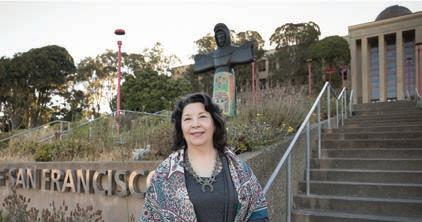





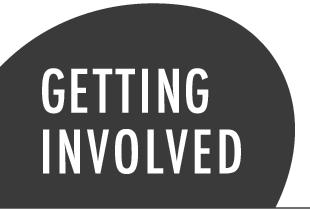

Green Benefit District
Check out the GBD’s recently completed pedestrian and bike cut through on Tennessee St south of 25th. And join us for our next online monthly meeting at 6:30 pm on Wednesday, October 21, 2020. Information on how to participate is on the GBD website at GreenBenefit.org
Potrero Boosters Neighborhood Association
Be in the know. Meet your neighbors. Make the Potrero a better place. We’re meeting virtually on the last Tuesday of each month at 7pm. Go to www. potreroboosters.org for details.
Starr King Open Space
The annual new board member election is on October 19th at 7 pm. Anyone interested can learn how to apply at our website or learn how to join the public meeting virtually through Zoom.
If you can, please donate to help keep Starr King Open Space open, accessible and well maintained for our neighbors. www.starrkingopenspace.org
First Saturdays in Dogpatch: A neighborhood-wide event held monthly Explore neighborhood shops, enjoy great food and drink, discover maker market at Center Hardware and 1234 Indiana Street, be inspired at gallery openings at Minnesota Street Project. All this and more when it is safe to gather again. Meantime, please visit LoveDogpatch.com
For a $200 annual fee your organization can be listed in Getting Involved. Contact production@potreroview.net

2787-89
2787:
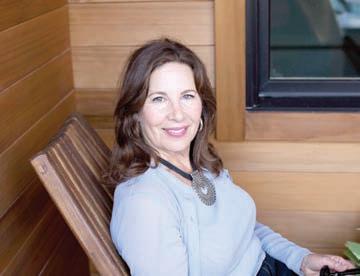

For over 20 years, I’ve been serving the students and families of San Francisco as a public school teacher and the founder and principal of June Jordan School for Equity. I’m currently a community organizer with Faith in Action Bay Area. My experience in SFUSD and knowledge of our community will bring a needed voice to the School Board.
Under Article 34 of the state Constitution, voters must approve low-income housing developments before they can be built. Proposition K, authored by District 5 Supervisor Dean Preston, would authorize “the City and County of San Francisco to own, develop, construct, acquire, or rehabilitate up to 10,000 affordable rental units in the City…”
The measure, which passes with simple-majority vote, doesn’t provide any funding for housing.
There are almost 400,000 housing units in San Francisco, roughly 34,000 of which’re designated as affordable by government-imposed deed restrictions. If Proposition K passes, a pilot program will be launched to foster the creation of up to 10,000 additional lowrent units, priced for San Franciscans earning below 80 percent of the City’s median income.
Article 34 only applies to low-income housing, excluding new construction or purchase of residences priced for middle or high-income Californians.
“Article 34 of the California Constitution is a racist stain in our state’s history, narrowly passed in 1950 with the backing of segregationists to block affordable housing and exclude Black
tenants,” noted Preston in the proposition’s official argument. “Prop K is a step towards removing this racist legacy and authorizing the creation of up to 10,000 additional units of permanently affordable housing in San Francisco.”
The measure is supported by the San Francisco Board of Supervisors, San Francisco Democratic Party, Housing Rights Committee, and the Potrero Hill Democratic Club, among others. It’s opposed by the Libertarian Party of San Francisco.
According to Starchild, Libertarian Party chair, the party’s opposition is based on “a larger pattern of government interference that has created a housing shortage,” despite “taxpayer money spent annually to supposedly address the problem.”
Starchild suggested other solutions to San Francisco housing crisis, such as eliminating zoning restrictions and “mak[ing] it legal and easy to subdivide a piece of property into smaller lots which could hold smaller, less expensive homes. Voters are often presented with a choice between higher taxes or reduced services; there are various other reforms that could help reduce the cost and increase the availability of housing in our community.”
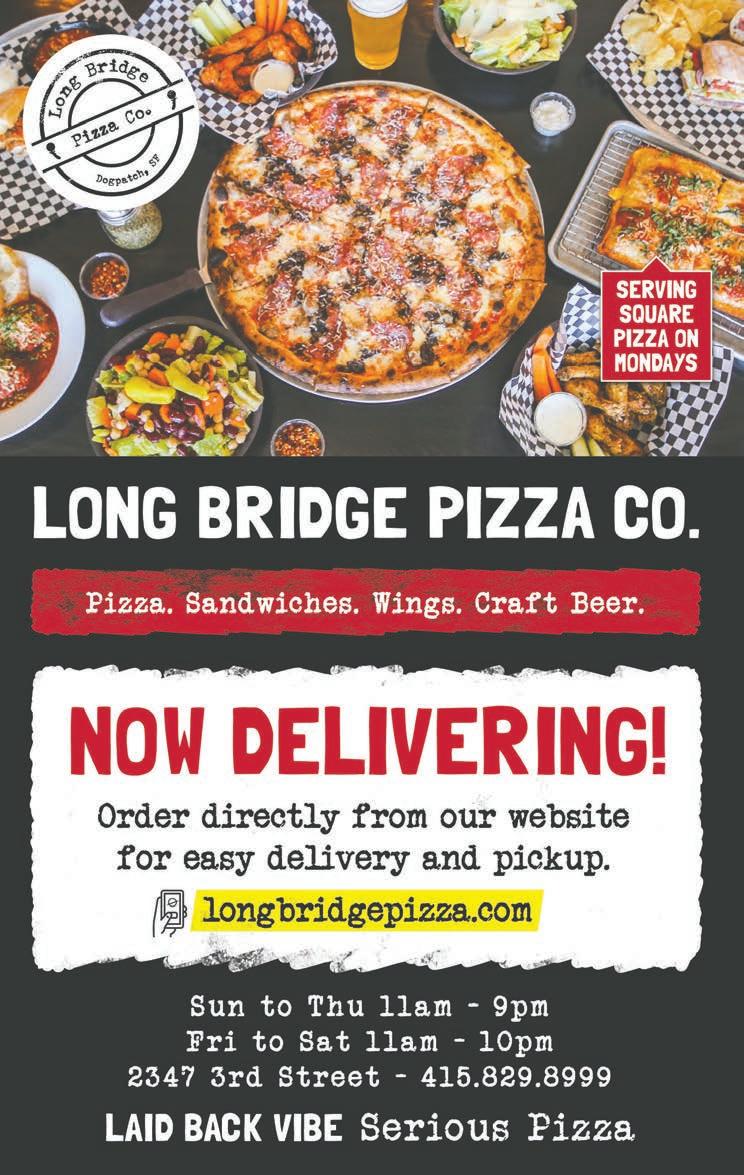

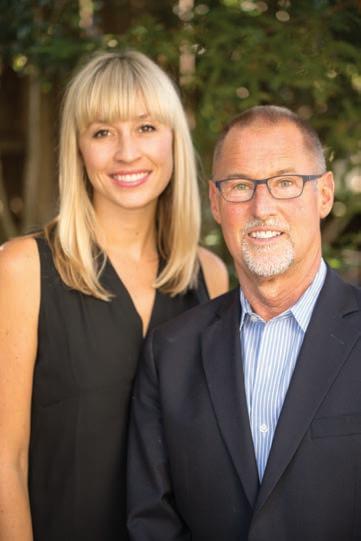

Proposition G would allow those aged 16 and 17 to vote on local candidate races and ballot measures, with passage requiring 50 percent plus one.
“The amendment could be expected to increase the number of registered voters for municipal elections by up to approximately 1.5 percent. The Department of Elections would have some additional costs to produce voter materials,” said City Controller Ben Rosenfield.
Businessman Richie Greenberg opposes Proposition G because legally 16- and 17-year-olds are children. “They still need permission slips to go on a field trip. Many if not most of our City teens do not drive, don’t work, and have not participated in owning or managing a business. The worldly experiences of being an adult hasn’t yet come to them,” said Greenberg.
According to John Dennis, San Francisco Republican Party chairman, minors are prohibited from serving on a jury, renting a vehicle, or purchasing handguns, alcohol, tobacco, and marijuana. “Why should an exception be carved out from existing laws to allow minors to vote?” he asked.
“We make a lot of decisions for transitional-aged youth. They deserve to participate in our democratic process,” said District 10 Supervisor Walton, who supports the measure.
District 1 Youth Commissioner
Sarah Cheung, 17, favors Proposition G, believing that youth input is especially important during the public health crises and Black Lives Matter movement. “The pandemic has revealed inequalities in technology, housing, and transportation. As our generation continues to remain residents of the City, we should get a say in how we want the recovery to look,” said Cheung.
The San Francisco Youth Commission is composed of 17 members between the ages of 12 and 23 who advise the Mayor and Board of Supervisors about youth issues.
According to Cheung, an Outer Richmond resident, living conditions and ethnic demographics are different from the Southside. “Yet in District 1, 16- and 17-year-olds also take on a lot of responsibility. Many teens translate for and assist their parents...substantially help their parents communicate with schools and...businessowners,” she said.
Crystal Chan, 18, District 7 Youth Commissioner, supports the measure because she believes 16 is a better age than 18 to build voting habits. “18 is often a challenging time to establish the habit of voting because you’re in a state of transition. If you’re going away to school, you’ve moved and are starting a whole new life. You may not know the deadline and requirements for registration for your new place of residence. You may not be familiar with the issues there as well,” said Chan.
Nonprofits advocating for Proposition G support youth voting measures
elsewhere, including Measure QQ, which’d allow 16- and 17-year-olds to vote in Oakland Unified School District school board elections, and Proposition 18, a state measure that’d enable 17-year-olds to vote in primary and special elections if they turn 18 by the subsequent general election.
“Our organizers in Oakland and San Francisco for youth voting measures are part of a broad alliance regarding empowering youth,” said Luis Sánchez, executive director of Power California, a statewide organization that works with young voters of color. “Together, we’ve worked on putting together a narrative that encourages voters to give youth a voice and increase civic engagement. This election year, young people are highly engaged in social movements. Overall and for young voters, we expect a much higher turnout for the presidential election than four years ago.”
“Teenagers in the southeastern neighborhoods are helping with childcare, making dinner, and budgeting for the family,” said San Francisco District 10 Youth Commissioner Rome Jones, 21. “I encourage individuals...saying that young people are not mature to go spend some time with the beautiful and brilliant minds of young people, especially within District 10. When you talk to young people and see what they are going through, you’ll understand why they think they could be decision-makers.”
In 2016, 52 percent of City voters declined to support Proposition F, which would’ve similarly enabled those aged 16 and older to participate in local elections.
dollars of revenue annually, requires 50 percent plus one votes to pass.
“COVID-19 has thrown San Francisco into our deepest economic downturn in over 20 years,” said Gwen Kaplan, founder of Ace Mailing. “Mom and pop businesses are already fighting for their survival. At a time when many are desperately trying to sell, break, or renegotiate their leases, this tax will increase their rents and threaten their safety nets when they can least afford it. Our economy cannot take one additional tax that goes into effect immediately.”
According to Laurie Thomas, Golden Gate Restaurant Association executive director, Proposition I would create substantial new costs that’ll be passed on to restaurants and other businesses, “usually through the NNN clauses commonly found in commercial leases… additional financial burdens on businesses trying not to permanently close.”
Jay Cheng, San Francisco Chamber of Commerce director of public policy, said some Chamber members supported a transfer tax increase in 2016, under Proposition W. “There’s a role for these types of taxes. Right now isn’t the right time. Small businesses are struggling and trying to renegotiate their leases,” said Cheng.
David Campos, San Francisco Democratic County Central Committee chair, said the measure’s benefits outweigh its negatives. “Every bit of tax revenue will help the City recover,” said Campos.

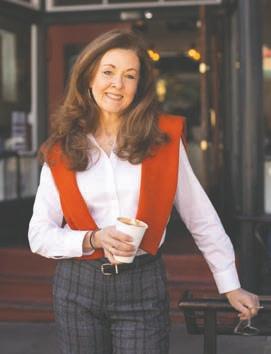

Under Proposition I the City’s real estate transfer tax would increase from 2.75 percent to 5.5 percent for properties sold for between $10 million and $24.99 million; and from three percent to six percent for properties vended for $25 million or more. The tax, which’d potentially generate tens of millions of
“We want as much funding as possible to provide affordable housing for San Franciscans,” said District 10 Supervisor Shamann Walton. “We have instituted eviction moratoriums and are doing everything we can to protect residents and small businesses.”
According to Fernando Martí, codirector of the Council of Community Housing Organization, Proposition I would help reduce wealth concentration. “After the Great Recession, in 2009 and 2010, investors bought out
Props G, I, J, RR continues on page 18

Ten people are running to fill four seats on the San Francisco Board of Education: Alida Fisher, small business owner; Paul Kangas, private investigator; Jenny Lam, board incumbent elected last year; Matt Alexander, co-founder of the June Jordan School for Equity; Michelle Parker, who has children in public schools; Kevine Boggess, education policy director at Coleman Advocates for Children and Youth; Mark Sanchez, an incumbent first elected in 2001; Andrew Douglas Alston, a San Francisco Unified School District teacher; Genevieve Lawrence, a teacher; and Nick Rothman, chair of San Francisco City College’s Automotive, Construction and Custodial Departments.
Four of the candidates responded to a View query asking why they should be voters’ choice; whether they were satisfied with the Board’s performance preparing for the start of the 2020 academic year; whether online learning can work; how ecology should be taught; what single achievement they’d want to make; and their position on
teachers, paraprofessionals, parents and families, and students themselves.
SFUSD should be leading the way with in-person learning solutions for younger children, students with special needs, and students in overcrowded living situations.
I’m proposing a district-wide interdisciplinary, project-based unit on climate change, culminating in a Green New Deal Summit.
SFUSD spends the lowest percentage of any large California district on classroom instruction; only 54 percent of the general fund budget. I would reallocate funds directly to schools and classrooms to increase that to 68 percent, the highest in the state.
The original intent of charter school laws when they were passed 30 years ago was to provide a space for grassroots innovation which would then benefit the public school system. But these laws have been co-opted by corporate entities intent on undermining public education. I believe we need fewer charter schools and am launching a campaign to get charters to relinquish their charters and join SFUSD.
of students and parents to improve our public schools and have co-led local and state campaigns to change education policy and increase school funding. As a graduate of SF public schools and the father of a future public school student, I am committed to a platform that improves our schools and puts our marginalized students and families at the center.
This past spring the school district quickly pivoted to provide a quality education remotely. I was impressed by how quickly educators moved to create meaningful experiences for their students and provide continuity in the midst of chaos. I am pleased that the district is now implementing important lessons learned from the spring semester as school closures continue.
There is simply no substitute for in-person learning. That said, the district must provide individual learning plans to ensure each student can be successful during this period of crisis learning, and should also do that for educators, who’ve had to learn new ways of teaching and connecting with students in a meaningful way. Continued distance learning should include


Proposition L, the “Overpaid Executive Gross Receipts Tax,” would add a duty to companies whose executives earn 100 times or more the median salary of the rest of their San Francisco workforce. District 6 Supervisor Matt Haney, the measure’s lead advocate, estimates that the tax would generate between $60 million and $140 million annually for the City’s general fund.
Businesses that earn at least $1.17 million annually would be subject to the tax, equal to 0.1 percent of gross receipts made in the City. The levy would jump to 0.2 percent for executives making 200 times the company’s median salary; one percent for executives earning 1,000 times the median.
Compensation would include wages, salaries, commissions, bonuses, and property provided in exchange for the performance of services. Companies likely to be taxed under the initiative include JP Morgan, Bank of America, San
Wells Fargo paid its chief executive

“In the past when we talked to district supervisors, they said, ‘I’m one of 11. What can I do?’ We realized we needed to address that,” said Mark Nagel, RescueSF’s co-founder and a Marina resident. “We realized we needed to be citywide so when we talked to the supervisors they couldn’t say, ‘You’re some group that’s not part of my district.’”
RescueSF co-founder Lori Brooke, Cow Hollow Association president, added, “We’re a bigger voice if we can unite as one.”
In February roughly 45 people gathered at Fort Mason to discuss how to address homelessness, including presidents or board members of Cow Hollow Association, Marina Community Association, Golden Gate Valley Association, Coalition for San Francisco Neighborhoods, Russian Hill Neighbors Association, Russian Hill Community Association, Presidio Heights Association of Neighbors, and Pacific Heights Residents Association.
“We’re not experts in homelessness,” said Brooke. “But we wanted to do something about it. There’s so much behind the homelessness situation and we wanted to dig deep to understand what’s happening and how to create effective change. We started calling and interviewing folks from around the country. We couldn’t hold all the information in our heads, so we started a speaker series.”
Over the past few months, the Coalition has held video calls with Dr. Margot Kushel, University of California (UC) San Francisco Center
for Vulnerable Populations director, and David Faigman, UC Hastings dean, among others, to educate participants. Membership is loose knit; roughly 30 neighborhood associations have expressed interest in joining the Coalition. Individuals can register on RescueSF’s website to receive email updates.
“It’s illuminating to hear from various voices, experts in different fields, to get their perspective on homelessness,” Brooke said. “It takes away the fever pitch of anger. Everyone has a right to care about San Francisco and we understand there is frustration with the City’s deterioration. But we also want to be compassionate about the causes of the homelessness. You can be angry at homelessness but not angry at the homeless.”
The Coalition has floated a threepronged plan to stop homelessness: prohibit street sleeping; expand mental health services; and keep people housed.
“Street sleeping is not safe, healthy, or compassionate,” Nagel said. “Homeless people must have sustainable, interim shelter until they move into permanent housing. We have to get people off the streets into safety and there are lots of ways to do that, which is the government’s job to explore. It could be tiny houses or RVs on piers. That has to happen. We have to end street sleeping.”
Some unhoused people are in crisis, presenting a danger to themselves and others, and need mental health services, Nagel added. RescueSF has asked its members to contact their supervisors and the Mayor to support psychological interventions for
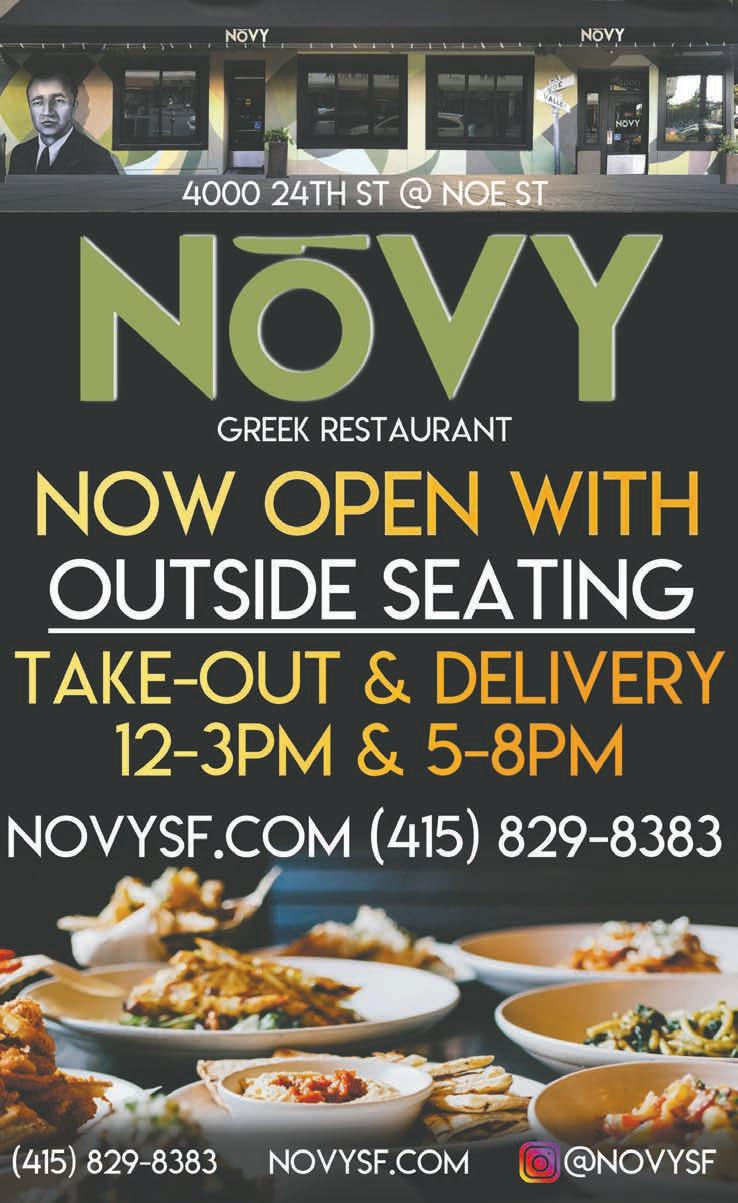
unhoused people.
“We have to look downstream, where our homeless residents currently on the street need a path to permanent housing and appropriate services,” Nagel and Brooke wrote in an email. “But we can’t end there. We also have to look upstream, where people need to remain housed in order to prevent future homelessness.”
Homelessness isn’t exclusive to San Francisco. RescueSF is engaging with regional and state governments to find solutions. The group hopes that a consistent approach to house people will obviate individuals moving from one place to another in search of viable shelter.
According to Katherine Doumani, president of the Dogpatch Neighborhood Association, a RescueSF member, “The homeless crisis has always been a great concern for everyone in San Francisco and many attempts have been made to help find the cause and solutions over the years with varying degrees of success, including carenot-cash, the navigation centers, more housing and rooms, but all appear to be failing or moving too slow to help nonetheless. However, with the pandemic, the status quo is inhumane, unacceptable, and worse than I have seen in all my years living in San Francisco. It is imperative that we help people get off the streets during this pandemic. It is unconscionable to leave people in crowded sidewalk cities with the current health crisis. I have heard the same sentiment from many of my neighbors and friends throughout San Francisco.”
“San Francisco’s housed residents have been passive and haven’t had a seat at the table in terms of policy in San
Francisco. Our voice has been missed along with other groups. We want to have our voices heard,” Nagel said.
administering the program it ends up being about double the original cost.”
According to the San Francisco Office of the Controller, the bond’s total cost would be $960 million. To finance that amount property taxes would be $10.66 per $100,000 of assessed valuation greater from 2021 to 2053. “The highest estimated annual property tax cost for these bonds for the owner of a home with an assessed value of $600,000 would be approximately $83.13” said Controller Ben Rosenfield.
“Government spending is recognized as being highly wasteful and inefficient. There isn’t a lot of accountability. This leads to a blank check to politicians because of corruption.” said Starchild.
“There is always financial accountability,” Supervisor Walton responded. “That’s why there is a Controller. Their job is to make sure that we use resources to what they’re intended for, and that’s the job of the BoS too. You will be able to see the work happening, and the outcomes from what the bond does. There will be road repair, beautification, connections to services to get people off streets. There are so many ways to hold us accountable.”
Under the measure, $29 million would be used to expand and improve open space at 900 Innes Avenue, located between India Basin Open Space and India Basin Shoreline Park, south

of Heron’s Head Park. According to Measure A promotional materials, by linking the two parks with an improved 900 Innes Avenue “the India Basin project will create a 20-acre network of new and/or improved open space. The new park will feature pedestrian and bicycle shoreline access, passive open space, fishing areas, tidal marshes, plazas and event spaces, concession stands, picnic areas, site furnishings and historical and educational displays.”
Measure A would dedicate $10 million to Jackson Park renovations.
“Measure A will turn Jackson Park into the world class park Potrero Hill has been fighting for.” said Walton.
“Always, but especially during this unprecedented time of the current global pandemic, parks provide a space for people to gather and be with community,” Jude Deckenbach, Friends of Jackson Park executive director. “Our parks and green spaces are essential for our physical fitness and mental health. Completion of the Jackson Park renovation project is contingent upon receiving the $10 million allocated to us in the Health and Recovery bond. We hope everyone joins us in supporting Measure A on the Nov. 2020 ballot.”
“Approving Measure A is necessary to ensure that District 10 residents receive the new and improved parks and open spaces needed to support our growing population.” said J.R. Eppler, Potrero Boosters president.
According to Measure A proponents, $90 million would be used to “stabilize, acquire, construct, expand and/or improve Permanent Supportive Housing units and shelters.” The City currently provides temporary shelter
to roughly 3,400 individuals nightly. One hundred and seven million dollars would be spent to “repair, rebuild, acquire, construct, stabilize and improve public facilities that deliver services, treatment and/or residential care for people requiring mental health and substance use services.” The San Francisco Department of Public Health offers health services to about 30,000 individuals annually, including treatment for mental health and substance use disorders.
Under Measure B resources would be shifted from the Department of Public Works (DPW) to a new Department of Sanitation and Streets (DSS). The measure’s lead proponent is District 6 Supervisor Matt Haney, who represents the Tenderloin, Southof-Market, Treasure Island, and Civic Center.
“Anybody who steps on our streets, particularly in Downtown San Francisco or the Tenderloin, can see that DPW isn’t doing its job.” said Haney. “Nearly all other major American cities have a DSS and do a much better job of keeping their streets clean. A city as wealthy as San Francisco should not be the laughing-stock of major cities because of the condition of our streets.”
Measure B proponents promise a data-driven cleaning model, sanitary and safe public toilets, more public trash cans, and in the wake of the former head of DPW Mohammed Nuru’s corruption scandal, accountability and oversight.
“Measure B creates a department head that is accountable, a commission that sets baseline standards for cleanliness and services, and a responsibility to root out corruption and waste.
Measure B creates oversight, tracks data, and would approve contracts publicly. None of that is happening now.” said Haney. “Ninety percent of DPW functions are not related to street cleaning. The director is responsible for infrastructure, zoning, and planning, and the current head of DPW doesn’t have any experience with street cleaning. The DSS would hire a director with a background in street cleaning and sanitation.”
“The City Charter has a very clean and simple allocation of responsibilities to the DPW and it provides a kind of isolation from the politics of the BoS,” countered Republican Party Central Committee member Larry Marso.
“Measure B removes authority from the City Administrator, converts DPW and DSS into a whole different type of government with new commissions, and more importantly gives the BoS more power over the spending than they do today. This is a blank check that grants the BoS power to take money previously allocated to DPW to any other city department. Look at the paid endorsements. Every union imaginable endorses Measure B, and this allows the BOS to agency shop and offer raises to unions in a year when many of the supervisors are up for re-election.”
Marso has filed a complaint with the Department of Elections, claiming that Haney has made false claims related to the measure. “That Matt Haney says DSS will set new clean street standards is misleading. He is making representations that are not in Measure B. It does not have a data driven cleaning model, or clean and safe public toilets written into the City Charter.” said Marso.
“The responsibilities of a com -
mission are already outlined in our City Charter,” responded Haney. “They include approving contracts, an overseeing director, and setting policies. The commission that oversees the department will be required to set baseline standards. This is more explicit than our City has ever been. If I could legislate every sidewalk to be spotless, I would. Instead, we create the most responsible and accountable structure of government we can. I don’t think I believe Larry Marso believes in government at all. In addition, amendments to the charter will include public restrooms, as well as the cleaning of public sidewalks. Currently, when DPW is confronted about our dirty sidewalks, they say ‘it’s not our responsibility.’ That needs to end”.
Marso believes the underlying problem lies with District Attorney Chesa Boudin, who he claims refuses to enforce quality of life laws, related to littering, public urination/defecation, vagrancy, and vandalism.
“Chesa spins it as laws that criminalize homelessness, but there is widespread criticism from across the political spectrum about the nonenforcement of crimes that are contributing to the poor conditions on the streets in San Francisco. Boudin is deciding not to enforce San Francisco law.” said Marso.
Marso drafted legislation to address homelessness in San Francisco but was unable to gather enough signatures to put it on the ballot. “Homeless policy is not simple. I have myself authored a specific plan to reform and fix our broken navigation center system. I am not someone who says putting
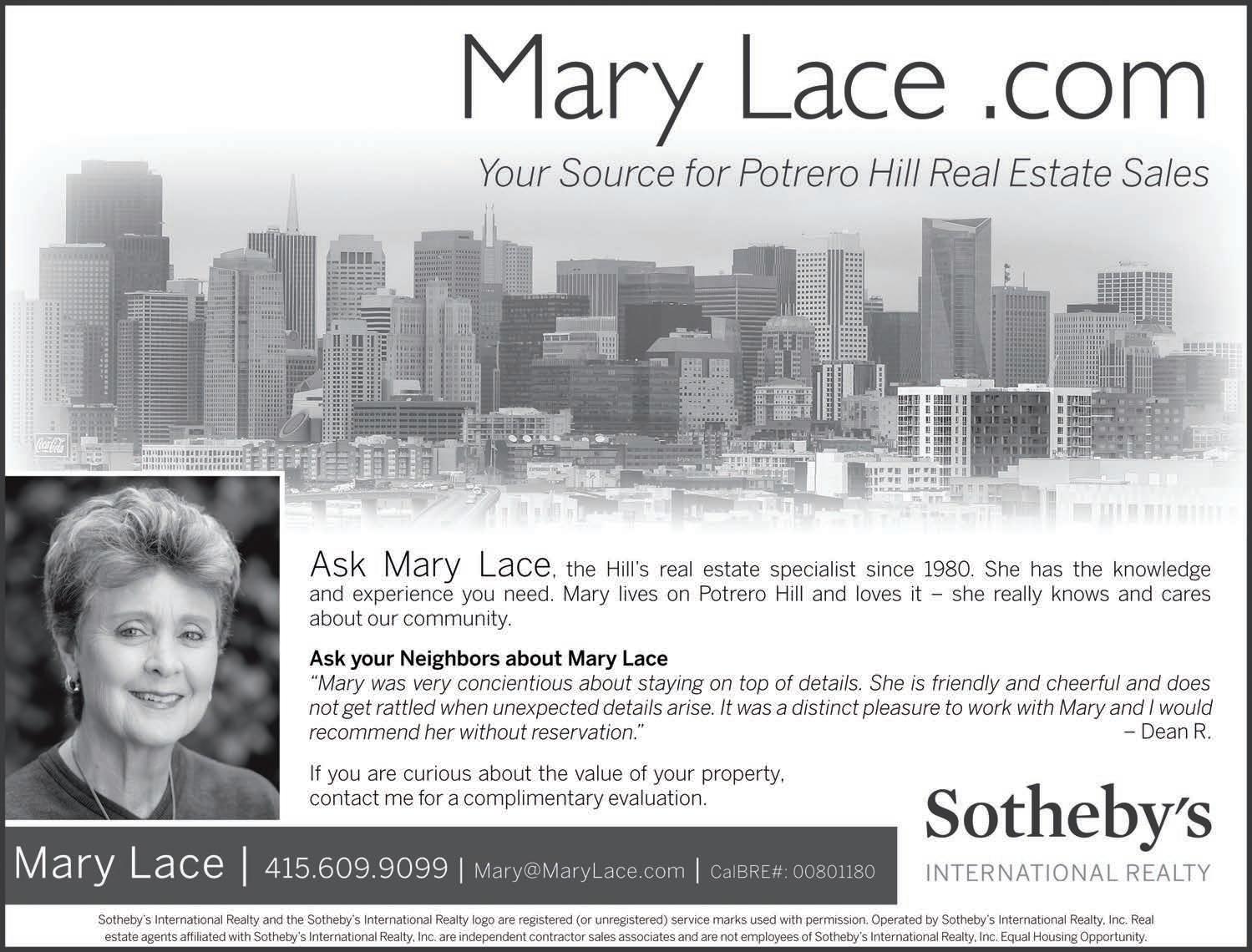
from page 3
enforcing the privacy law, the measure would increase financial penalties for violators and allow consumers to demand that personal information not be shared at all, rather than simply not sold.
View recommendation: Sure.
Proposition 25: Cash Bail
Largely funded by the bail bond industry, this referendum asks voters to either approve or strike down a state law that banished money bail from the state criminal justice system. In 2018, acting on the advice of state Supreme Court Chief Justice Tani Cantil-Sakauye, legislators passed a bill that made California the first state to end cash bail. Rather than allowing people to pay their way out of jail while they await trial, the law enables judges to determine whether someone who is arrested should be kept behind bars based on the risk they’re deemed to pose to themselves or others. A “yes” vote keeps the state law that terminated cash bail; “no” returns the state to the bail system.
View recommendation: Yes.
PROP D, E, F, H from page 6
Office of Community Oriented Policy Services, and Office of the City Controller, among other agencies, to identify best practices to establish police staffing levels and deployment. Matrix Consulting Group, which specializes
in law enforcement employment, to developed supporting analyses. Matrix recommended SFPD retain 2,176 sworn officers, 205 more than the mandated minimum, significantly higher than that 1,911 constables on staff earlier this year.
“It’s really important to know that over the last 25 years, the City has only achieved that minimum staffing for a period of a few weeks. It’s functioned more as a target than as a true minimum,” said Caitlin Vejby, a legislative aide for Yee.
The Charter presently requires the City to maintain the number of officers dedicated to neighborhood policing and patrol at least at the level it was in fiscal year 1993-1994. Proposition E would eliminate this mandate, replacing it with a directive for the Police Commission to hold a public hearing on SFPD’s proposed staffing report.
“It’s important to put this in the context of public safety as opposed to the context of law enforcement,” Vejby said. The existing minimum “isn’t tied to any information about the needs for our City.”
The measure would enable police resources to be allocated to other public safety staff, such as professionals equipped to provide an unhoused person with services. If passed it “would shape an ongoing conversation about staffing levels being tied to data,” said Vejby.
The City Controller’s Office doesn’t foresee notable public sector costs associated with the measure.
The San Francisco Police Officers Association (POA) didn’t respond to requests for comment. Tony Montoya, POA president, issued a statement
in May calling the proposed charter amendment “reckless.” The San Francisco Republican Party and Taxpayers Association oppose it.
Proposition supporters include Police Commission members Petra DeJesus, John Hamasaki, Cindy Elias, DionJay Brookter, and Damali Taylor, and the Potrero Hill Democratic Club, among others.
Proposition F carries the weight of the City’s proposed $13.7 billion 2020-2021 budget on its shoulders. “(I)f Proposition F… fails, it blows an immediate…hole in the budget…” reported Mission Local. “The City has already appropriated money from a reserve fund stocked with money the City assumes will become available upon passage of Prop F.”
Proposition F, which consists of 125 pages of dense legal text impossible for most voters to understand, would repeal San Francisco’s payroll tax, effective in 2021, reduce business registration fees, and increase the exemption from the gross receipts tax to $2 million. Companies making more than $2 million annually would pay 100 percent of their taxes based on gross receipts after payroll taxes are repealed starting in 2022.
“The COVID-19 pandemic has had a devastating impact on our small businesses and deepened the disparities in our City, which is why now is exactly the right time for Prop F. Small businesses are permanently shutting down and need relief right away,” Yee said. “Prop F updates San Francisco’s system of business taxes and makes it more fair by providing relief to small businesses and requiring larger businesses to pay their fair share.”
“The Chamber is opposed to it because it does raise taxes for businesses making more than $2 million per year, but we recognize it does do a few things to help small businesses,” said Jay Cheng, San Francisco Chamber of Commerce spokesperson. “I would say if you are in tech, banking or accounting, an attorney, or professional services, you’re going to see the largest tax increases. If you’re running a restaurant, bar, night club, hotel, you’re probably going to see a tax break sometime next year.”
A provision in the proposition would enable the City to spend tax revenue collected as a result of Proposition C, a 2018 ballot initiative to fund childcare and early education that’s been held in escrow because of a legal challenge that it didn’t secure a two-thirds plus one majority vote. Proposition F would release these monies by creating a “backstop” tax that’d go into effect if the City loses the litigation on the original measure. Though it’s unclear, it appears that Proposition F would have this affect because associated revenues would be directed to the general fund, rather
Board of Supervisors President Norman Yee put the City Charter amendment and ordinance on the ballot with unanimous support from the Supervisors and Mayor London Breed. According to Yee, the measure would benefit sectors most impacted by COVID-19, such as retail, hotels, restaurants, and manufacturing. PROP D, E, F, H continues on next page















PROP D, E, F, H from previous page
than any specific programs, though municipal leadership would apparently direct released funds to childcare and early education. That same provision would’ve permitted similar one-time spending of $492 million for homeless and housing services that was being held until the California Supreme Court declined to hear a similar legal challenge to it last month, liberating the funds.
“The court decision is great news for the City and efforts to address housing and homelessness, but we still face a number of challenges as we recover from the COVID-19 pandemic,” Yee said. “We need to pass Prop F to provide immediate relief to struggling small businesses and to release the voterapproved funds for early childcare and education.”
In addition to releasing Proposition C funds, the City Controller’s Office estimates that the measure would generate an additional $97 million in general fund revenues annually once it’s fully implemented in 2024.
“I’m definitely excited about Prop F, so we can envision what we want to have happen with the budget,” Supervisor Walton told The View
“Proposition F increases small business exemptions from the gross receipts tax and eliminates remaining payroll taxation with a new gross receipts tax on technology and financial services,” stated retired Judge Quentin Kopp in Westside Observer. “I’ll vote ‘Yes.’”
Proposition F is supported by the Children’s Council of San Francisco, Christin Evans, owner of Booksmith
and Haight Ashbury Merchants Association president, Balboa Theater owner Adam Bergeron, and Council of District Merchants Associations president emeritus Henry Karnilowicz, among others.
“If we raise the taxes on some of our most successful businesses, at a certain point it makes sense for them to just leave,” said Sharky Laguana, owner of Bandago and San Francisco Small Business Commission president.
“They don’t have to go far. My colleagues at business associations are looking at it and I think it’s fair to say they’re not supportive. But the Board of Supervisors and the Mayor listened to suggestions from many business leaders including the Chamber of Commerce. It’s a tough time to be raising taxes and it makes me nervous, but I’m always happy to see consensus and collaboration in City Hall.”
The Libertarian Party of San Francisco opposes Proposition F.
Proposition H, Neighborhood Commercial Districts and City Permitting
There were vacant storefronts throughout San Francisco before shelter-in-place directives to contain COVID-19 went into effect in March.
Since then, hundreds of the City’s restaurants and other businesses have permanently closed, adding to vacancies. The Golden Gate Restaurant Association forecasts that half of San Francisco’s eateries -- more than 2,000 -- will shutter by the end of the year. Businesses that have stayed open have pivoted to new ways of operating.
Proposition H, sponsored by Mayor London Breed, would streamline the

system for permitting small businesses along the City’s commercial corridors, reducing the amount of time to obtain approval from approximately a year to 30 days. City inspections would be consolidated. If a proposed use of a commercial space is already acceptable, neighborhood noticing requirements would be removed.
The intent is to fill vacant storefronts with arts activities and nonprofits on ground floors, professional services on upper floors, enabling them to secure a permit without having to go to the Planning Commission, according to a fact sheet supplied by Nadia Rahman, campaign manager for Yes on Prop H, Save Our Small Businesses.
Attempts to streamline the permitting process have been attempted in the past, but were blocked by the Board of Supervisors, Rahman said. “When you think about the heart and soul of San Francisco, these small businesses really are what San Francisco is,” Rahman said. She added that many of the City’s mom and pop enterprises are black-, women-, LGBTQ-, or immigrant-owned.
“Small businesses are inherent to the fabric of the City and a big part of San Francisco culture. The pandemic is the biggest test to the survival of these businesses they’ve ever faced,” Rahman said. “If we drag our feet, it could mean permanent loss.”
“From concept to launch it takes a long time to get a business off the ground,” Small Business Commission president Sharky Laguana told The View. Posting public notice “gives neighbors, including neighborhood associations, notice that they can file a discretionary review with the Planning
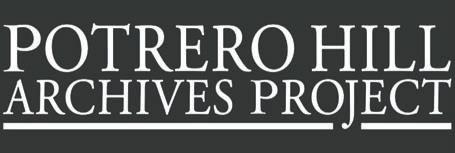
Commission,” which delays approval. If the measure passes, “People can still file a discretionary review, even though Prop H allows new business owners to skip the public notification process.”
Small Business Commission vicepresident Miriam Zouzounis and commissioner Manny Yekutiel, along with Ben Bleiman, San Francisco Entertainment Commission president and San Francisco Bar Owners Alliance founder, among others, support the measure.
The Potrero Hill Democratic Club didn’t take a position on the proposition after considerable discourse. “Potrero residents are very smart about voting. Anything with land use, there’s going to be disagreement,” PHDC president Bill Barnes told The View
The League of Pissed Off Voters, a progressive group, is opposed to Proposition H.
The City Controller’s Office believes Proposition H could moderately increase the City’s costs to review, approve, and inspect the small business uses covered under the ordinance.
A simple 50 percent plus one majority is required for passage of Propositions D, E, F and H.



Bored in the House?
I’ll take your kids outside to play!
I’m a college sophomore, Division III Women’s Lacrosse player, soccer player, experienced camp counselor, and certified wilderness first responder who’s available for outdoor soccer coaching, fitness training or just playing in the park - $20 per hour per child (group rates available). Call or text me: Sara 415-872-2254
Freelance Writers Wanted
Modest pay, interesting assignments. Contact: editor@potreroview.net
Subscription Salespeople Wanted
Minimum wage, intermittent work. Editor@potreroview.net
Legal Notices
The View now accepts legal notices. Please contact: production@ potreroview.net; 415.643.9578.
Single car or
Hill or reasonably close. Please contact Jim 415.265.9811.
Walking distance to the beach, with the crashing waves visible and audible. No need to interact with anyone but your lovely selves. And we have plenty of toilet paper!
Studio: Cozy studio comfortable for two-people. Includes kitchenette and private patio with views of the crashing waves. $175/night plus cleaning fee, two-night minimum. Editor@potreroview.net or 415.643.9578.
House: Three bedrooms, two full baths, with deck with views of the crashing waves. $300/night plus cleaning fee, three-night minimum. Editor@potreroview.net or 415.643.9578.
Got something to sell? Have a service to provide? Each classified ad is $25 for up to 200 characters. www.potreroview.net/advertise
PUBLISHER’S VIEW from front page
evaluate multiple candidates for offices high and low, and many state and local ballot initiatives, sifting through a mix of propaganda, identity-politics endorsements and opaque legal language. Taken seriously, voting can feel as difficult and distasteful as doing taxes. Which is why fewer than half of eligible Californians turnout for local elections.
To help just a bit, the View has dedicated this issue to local measures and candidates. Not all of them, but as many as our capacity allowed. The attempt isn’t so much to endorse anything or anyone, though we do some of that, but to provide a kind of CliffsNotes to assist with ballot reading assignments.
For the sake of democracy, pour yourself your favorite all-natural, organically grown, fair trade, or better yet locally cultivated, stimulant, organize your study group, online or outside, and wade through the sometimes cloudy sometimes crystal clear political waters. If you can, get some joy from the exercise, the sensation of deciding what’s important to you, what’s not. Choose your representatives. Be not enslaved.
PROPS G, I, J, RR from page 12
multifamily buildings and commercial properties. With people losing their jobs and small businesses experiencing financial difficulty...this could happen all over again,” said Martí.
“I understand that the City needs revenue in an unprecedented time,” said Mark Geisreiter, executive managing director of Newmark Knight Frank, a commercial real estate advisory firm. “Yet, the transfer tax could actually reduce revenues to the City. A six percent transfer tax would result in fewer sales as many owners would be unwilling to sell. They will hold their property, which means the City will not receive any transfer tax. No matter what happens with Prop. I, everything revolves around a health solution with COVID-19.”
Proposition J would institute a $288 parcel tax, the proceeds of which would be directed to the San Francisco Unified School District (SFUSD), increasing by the consumer price index annually over 30-years. A similar measure, Proposition G, was approved by 61 percent of voters in 2018 but is subject to a legal dispute over use of a simple-majority threshold to validate it. Proposition J is expected to generate roughly $48 million in revenues a year, starting in 2021. It must receive a two-thirds vote to take effect.
Mayor London Breed is Proposition J’s primary proponent. Supporters include the San Francisco Board of Supervisors, Marc Benioff, Salesforce’s chief executive officer, and the San Francisco Labor Council, which is affiliated with more than 150 local unions, among others.
The San Francisco Taxpayers Association, an organization opposed to taxes, and the San Francisco Republican Party oppose the measure.
Passage of Proposition J would serve to release more than $100 million being collected under Proposition G. These funds have been held in escrow because of a lawsuit filed by San Francisco resident Wayne Nowak, who asserts that a supermajority was required to approve the tax. In May, San Francisco Superior Court Judge Ethan Schulman ruled that only a simple majority vote was needed. Nowak is appealing the decision; the funds cannot be spent while the case is being litigated.
According to Anabel Ibanez, United Educators of San Francisco political chair, Proposition J would address the extant legal issue. “It would ensure funding for teachers and classrooms is not taken away during this pandemic. Prop. J will bring much needed resources for teachers to provide a quality education,” including salary increases, said Ibanez.
David Campos, San Francisco Democratic County Central Committee chair, said supporting schools “should


be a big priority for the City. The school system is going to be facing very deep cuts because of the financial crisis. Public education is a great equalizer. We need to invest so families remain in the City.”
District 10 Supervisor Shamann Walton said Proposition J is needed because teachers have been underpaid for decades. “A challenge came to 2018’s Prop. G, but voters had already approved funding to schools. This proposition will make sure teachers and classrooms get what they deserve,” said Walton.
Retired judge Quentin Kopp said one of his main concerns about the proposition is that the same amount is levied on a single-family home as on a large commercial property. “That is a grossly unfair method of taxation. The parcel tax is a regressive tax,” said Kopp.
Measure RR would institute a 30year 1/8 cent sales tax to fund Caltrain, along with additional oversight and audit requirements, including review by an independent citizens’ oversight committee. The measure needs a twothirds vote to pass in San Francisco, San Mateo and Santa Clara counties.
If approved, it’ll raise an estimated $100 million annually. The funds would be used to preserve Caltrain service, increase train frequency and capacity, and enable discounts for low-income riders, among other things. Tax collection would start in April 2021.
Measure RR is supported by U.S. Senator Dianne Feinstein, Mayor London Breed, the San Francisco Democratic County Central Committee and the Potrero Hill Democratic Club. It’s opposed by the San Francisco Republican Party, among others.
“Caltrain has never had a dedicated stream of revenue,” said District 10 Supervisor Shamann Walton. “Measure RR would provide Caltrain with a dedicated funding source. Historically, the three counties that use Caltrain have funded it consistent with their number of riders. If Measure RR passes, Caltrain would also eliminate contributions from the San Francisco Municipal Transportation Agency. These
resources could be used for Muni.”
According to Walton, the City presently funds Caltrain by shifting monies from SFMTA. If Measure RR is approved, these assets would be retained by SFMTA.
“Public transit can’t be allowed to fail because of a pandemic,” Cat Carter, spokesperson for San Francisco Transit Riders, a nonprofit organization that advocates for public transportation, said. Without Caltrain “…more people will get stuck in gridlock and people without resources will be left further behind. We will not be able to address climate change, the impacts of which are getting more dire every fire season.”
“Proponents of this tax say 1/8 cent is hardly any money but right now, every penny counts for people. In addition, sales tax is the most regressive type of tax. It hits lower middle class and poor people the hardest,” said Eric Garris, a San Franciscan who opposes Measure RR. Garris is also concerned that San Francisco residents are required to pay as much as San Mateo and Santa Clara county residents.
In 2019, 22 percent of Caltrain riders lived in San Francisco, 28 in San Mateo County, and 43 percent in Santa Clara County.
“Perhaps the tax would be more equitable if more of it was paid by residents of the counties that use Caltrain more often,” said Garris.
“We understand the importance of Caltrain to our community,” said J.R. Eppler, Potrero Boosters president. “While sales taxes are regressive, we find ourselves in an emergency. Pollution from increased auto trips and slowed electrification are also a regressive tax on the southeast part of the City. I am glad that this ballot measure was coupled with governance reforms that will help address equity issues along the corridor.”
Caltrain’s ridership declined by roughly 95 percent since February, from 65,000 to 3,200 riders daily. Last spring and summer, Caltrain relied on approximately $65 million from The Coronavirus Aid, Relief, and Economic Security Act. To lower operating costs the railroad reduced its weekday schedule from 92 to 42 trains per day and shifted staff to deferred maintenance and capital improvements projects.
SF BOARD OF ED from page 13
access measures to meet the needs of English learner students and families.
Ecology and environmental sustainability must be an essential part of SFUSD’s curriculum education. It is critical that the next generation understands the history of modern development and the associated ecological cost, not the least of which we are seeing now, with massive wildfires and a pandemic spreading across the globe. If we are committed as a school district to helping address ecological crisis and climate change, these explicit discussions and behavioral change must start in school at an early age, and the district should provide learning opportunities for students to get hands-on experience in addressing these enormous challenges impacting their future.
Create true accountability from SFUSD to our families and students; that means putting their voices and experiences at the center of decisionmaking and following through on promises made. Too often I hear from families that their feedback is ignored or dismissed and that must change. We want a school district that students and families are confident is working for them.
I oppose the expansion of charter schools and believe we must keep public schools public. I do support charter schools like Five Keys, where the charter is shared with another public institution which provides learning opportunities and the chance to earn a high school diploma in the County Jail system, filling a need not currently addressed by our public school system.
Jenny LamI am an experienced community organizer and an education leader who has devoted my life to fighting for equity. I volunteer in my children’s schools, have previously served as co-chair of two San Francisco Unified School District committees, have worked as the former state engagement manager at Education Superhighway and director of programs at Chinese for Affirmative Action, and currently serve as Mayor London Breed’s Education Advisor, creating partnerships within and across our public education system.
I am proud that the vote from the Board was reflective of and prioritized the health and safety of our students, educators, and school staff. Furthermore, I am grateful that educators, school site administrators, staff, as well as student, family, and community have been at the table collaborating and working through the reopening plans.
Our educators, school staff, and students have all learned from our own experiences last spring, and from emerging research, about best practices in providing high-quality instruction through distance learning. It can work. But we are working toward a hybrid learning model that will bring us closer to the most ideal learning environment where our students are back in classrooms safely.
Access to nature is essential to students’ wellbeing and their ability to learn and thrive, which is why I support SFUSD’s goal to provide all SFUSD students with free and easily accessible opportunities to explore, learn and play both in nature and on schoolgrounds around San Francisco. I support the
addition and implementation of a curriculum that focuses on student empowerment to create a more sustainable world for their community and learning that builds a healthy respect for the earth, and in turn, for oneself. Communities of color and low-income geographies are generally disproportionately affected by environmental calamities. Students must engage more with these topics as many of them are directly affected.
My one achievement I would want during my term would be simply to provide the best education for our students that focuses on uplifting and prioritizing their needs. If we can all do that as a community invested in learning outcomes, we will all be better for it.
Public schools should be fully public. I do not support increasing privatization or expanding charters. I support holding them accountable and I believe every aspect of our system should have the protection of labor rights and provide high quality education for all children and their families. And, to create a level playing field, we need to ensure that our City’s charter schools serve a student population that reflects the great diversity of San Francisco, including students with special needs, students learning English, and students from low-income families.
Michelle ParkerI have demonstrated my leadership, solutions-oriented approach, experience navigating and unifying people during challenge circumstances, understanding of education finance and policy, and commitment to students and families over the 15 years I’ve been active in the SFUSD community. I will act with integrity and urgency to ensure SFUSD serves each and every student.
I think the board prioritized many important things like making sure students were fed, had access to technology and highspeed internet, and received wellness checks during what was a very trying time. I also think we could tell as far back as April or May that this year would include at least some element of distance learning and planning could have begun earlier so that decisions and details could have been communicated to families and educators earlier, and so that teachers and principals could have started learning and planning together earlier; working families are in survival mode and need more assistance navigating these circumstances.
In-person instruction is preferable, but online learning can be good enough for now if we focus on established pedagogy that effectively engages students in online spaces, if we reallocate resources to increase relationship building between teachers, students and families, and if we are flexible and willing to learn and iterate as we go.
Ecology should be integrated into various subjects across the curriculum K-12, using real world events like wildfires, sea rise, extreme weather, and more to connect with classroom learning. We can also use the city and community as our classrooms, connecting with world class institutions around the city to add interest and relevance to students’ learning experience.
To increase and stabilize SFUSD’s budget through new revenue and also
by evaluating the programs and initiatives we invest in to determine whether those investments are improving outcomes for students and should be increased, held steady, or stopped, and to establish that our budget reflects our district’s values.
I do not believe we should expand charter schools in San Francisco, and that we should hold charter schools, and all schools, accountable for improving student outcomes. Some charters serve a purpose that SFUSD can’t or won’t and are important for meeting the needs of some students (e.g. Five Keys Charter and Life Learning Academy). We should also learn why some families choose charter schools rather than non-charter district schools, and then do what we can to build confidence that district schools can and will serve student needs.

officer $23 million in 2019; the company would have to pay its median worker at least $230,000 to avoid the lowest tax rate. A Wells Fargo spokesperson said the company doesn’t have a position on the measure.
Comcast’s CEO earned $36 million in 2019, according to U.S. Security and Exchange Commission reports, and would have to pay a San Francisco median worker at least $360,000 to avoid the lowest levy.
The proposition is supported by the San Francisco Democratic Party, San Francisco Labor Council, Service Employees International Union Local 1021, the International Federation of Professional and Technical Engineers Local 21, and other unions. Opponents include the San Francisco Taxpayers Association and San Francisco Chamber of Commerce.
Richie Greenberg, who ran for mayor in 2018, called the measure “misguided,” asserting that salaries are based on experience and the value an individual brings to a company. “By enacting such a bizarre hocus-pocus tax on executive salaries as Proposition L seeks to impose, the incentive for hiring new entry-level employees, or retaining current employees due to COVID-19 changes in business, would diminish,” he wrote in an argument submitted to the Department of Elections. “In other words, companies would reduce or stop hiring low-level employees as an answer to this measure, if it should pass.”
PROPS A, B, C from page 15
homeless in county jail is a solution.” said Marso. “When there are open air drug markets in the Tenderloin, the homeless are the victims of this kind of street crime. When someone experiencing homelessness can’t walk down the street without stepping on broken glass, that’s a quality of life issue for the homeless.”
“Our streets were filthy before
Chesa Boudin got into office.” said Haney. “I think they were worse a year ago more than they are today. I don’t think Boudin is the cause of our filthy streets, and I don’t think we can incarcerate our way to clean streets. The way to get clean streets is to have a plan, be accountable, have public oversight, and be strategic. Plenty of our other cities are able to maintain streets and sidewalks without having to arrest people for not throwing away their candy wrappers.”
Controller Ben Rosenfield estimates that beginning in fiscal year 2022 the measure would prompt a $2.5 to $6 million increase in government spending. Proposition B would move 835 of 1,711 full-time equivalent DPW employees to the Sanitation and Streets Department. “The amendment would also create two new five-member commissions: one to oversee the existing Department of Public Works and one to oversee the new Sanitation and Streets Department. Costs would include commission secretary, commissioner compensation, and costs such as preparing public materials.” said Rosenfield.
Haney claims these costs pale in comparison to the money San Francisco loses each year from missed revenue from conventions and tourists that skip the City because of street conditions.
Measure C, authored by Supervisor Walton and unanimously supported by the BoS, would allow any San Franciscan to serve on local government boards, commissions, and advisory bodies regardless of citizenship status. The measure would change the City Charter to drop citizenship and voting requirements for these positions and only mandate that individuals be San Francisco residents of legal voting age.
“It’s highly inequitable that we have folks that live in our City that can’t serve on commissions or committees.” said Walton. “They help drive our economies, work, pay rent and mortgages, have children in schools, are an important part of the diversity of our city, and the law now is inequitable, alienating, and just wrong. This is a commonsense opportunity to let people who are part of our democracy to participate in government. Folks should be able to represent the communities they serve, come from, work, and live in.”
The measure is opposed by John Dennis, San Francisco Republican Party chair. Dennis didn’t respond to an interview request. His paid argument against Measure C stated, “We would not be submitting this argument to oppose the measure if the authors had simply crafted the proposition to include both citizens and other legal residents. Instead, this measure also includes non-legal residents. We still believe the best way for immigrants to take advantage of the full benefits of our nation is to acquire U.S. citizenship.”
Controller Rosenfield found that the measure would have a minimal cost impact.
Measure C is endorsed by the San Francisco Libertarian Party, San Francisco Democratic Party, United Educators of San Francisco, San Francisco Latino Democratic Club, San Francisco Women Leaders, and Dogpatch Neighborhood Association, among others.
































